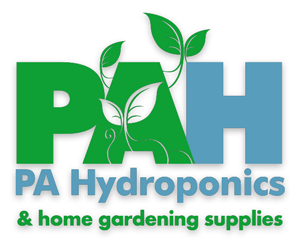From BAS:
BuildASoil's Favorite Mustard Seed Meal Fertilizer is approved for organic production. Our fertilizer is rich in natural plant nutrients and amino acids. Its formulation is 100% plant-derived allowing for a unique organic composition that selects for beneficial microbes in the soil. This, coupled with its highly bioavailable nutrient profile drastically improves crop nutrient uptake and therefore overall crop performance. There are no additives or preservatives used during manufacturing. This creates a unique, high-quality product that goes unmatched in the marketplace.
BENEFITS
- Fertilizer (NPK 4.50-1.50-1.15)
- Sourced from non-GMO seed
- Great source of organic material in your garden
- Easy to use and safe to handle
- Suitable for conventional and organic farms and gardens
- Enhanced soil biology
- High in Sinigrin Glucosinolate
Powder Or Pellets?
We plan on using Pellets for soil mixing and powder anytime even coverage is needed across the soil surface. Read more about the powder vs pellets below.
Caution:
- Can be harmful to young seedlings, be careful.
- Worms will move away from mustard meal when top dressed and if they can't move away it will be toxic to them.
- This stuff is potent and we are still learning, so proceed with caution if you are going to go hard.
White Papers On Using Mustard Seed:
Effectiveness of Defatted Mustard Meals Used to Control Fungus Gnats
Mustard Seed Meal for Management of Root-knot Nematode and Weeds in Tomato Production
Using High Glucosinolate Mustard as a Cover Crop to Reduce Weeds and Disease
Biologically Active Compounds in Mustard Seeds: A Toxicological Perspective
PELLETS vs. MILLED
Mustard Seed Meal Fertilizer is available in two different forms: Pelleted and Milled. Each of the two forms are from the exact same formulation, but have different uses and benefits.
PELLETS
Mustard Seed Meal Pellets are best used in applications where a slow release of fertilizer is desired. The pellets are less distributed throughout the soil and therefore break down at a slower rate. This is ideal for situations where long-lasting, slow release fertilizer is desirable. Application can be done by hand, or by pellet spreader/injector. The pellets are strong and hold together well, minimizing breakage in mechanical spreaders. In most cases, this is the most desirable form for top- or side-dressing, potted horticulture and backyard gardeners.
MILLED
Milled Mustard Seed Meal Fertilizer is simply a result of grinding and crushing the pellets into a powder-like consistency. When applied to the soil, Milled is better distributed throughout the soil profile. This allows for a more uniform availability and quicker release of nutrients. It is also more rapidly consumed by microorganisms, quickly creating a healthy living soil. It is best applied by hand or by a drop spreader (mulch/compost spreader). Careful consideration should be taken while using mechanized spreaders as the material has a high oil content that may cause clumping or clogging of machinery. It is best spread during days with mild temperatures and low humidity to avoid clumping. Milled is recommended for most pre-plant applications on the farm, garden, or container growing. As always, be sure to allow for a minimum three-week plant back with all pre-plant applications.
Applications of Mustard Seed Meal selects for specific bacterial and fungal communities in the soil. These specific communities work to improve nutrient availability for the crop, reduce plant stress, increase plant vigor, and improve yields. Scientists nation-wide have reported a consistent promotion of soil fungal and bacterial communities containing Trichoderma spp., Streptomyces spp., Pseudomonas spp., Anthrobotrys spp., Plectosphaerella cucumerina, Dactylella oviparasitica, Paecilomyces lilacinus and many more. Each of these beneficial microbes play a crucial role in the complex interaction occurring between soil and roots creating a long-lasting symbiotic relationship that aids in the enhanced production and protection of crops.





